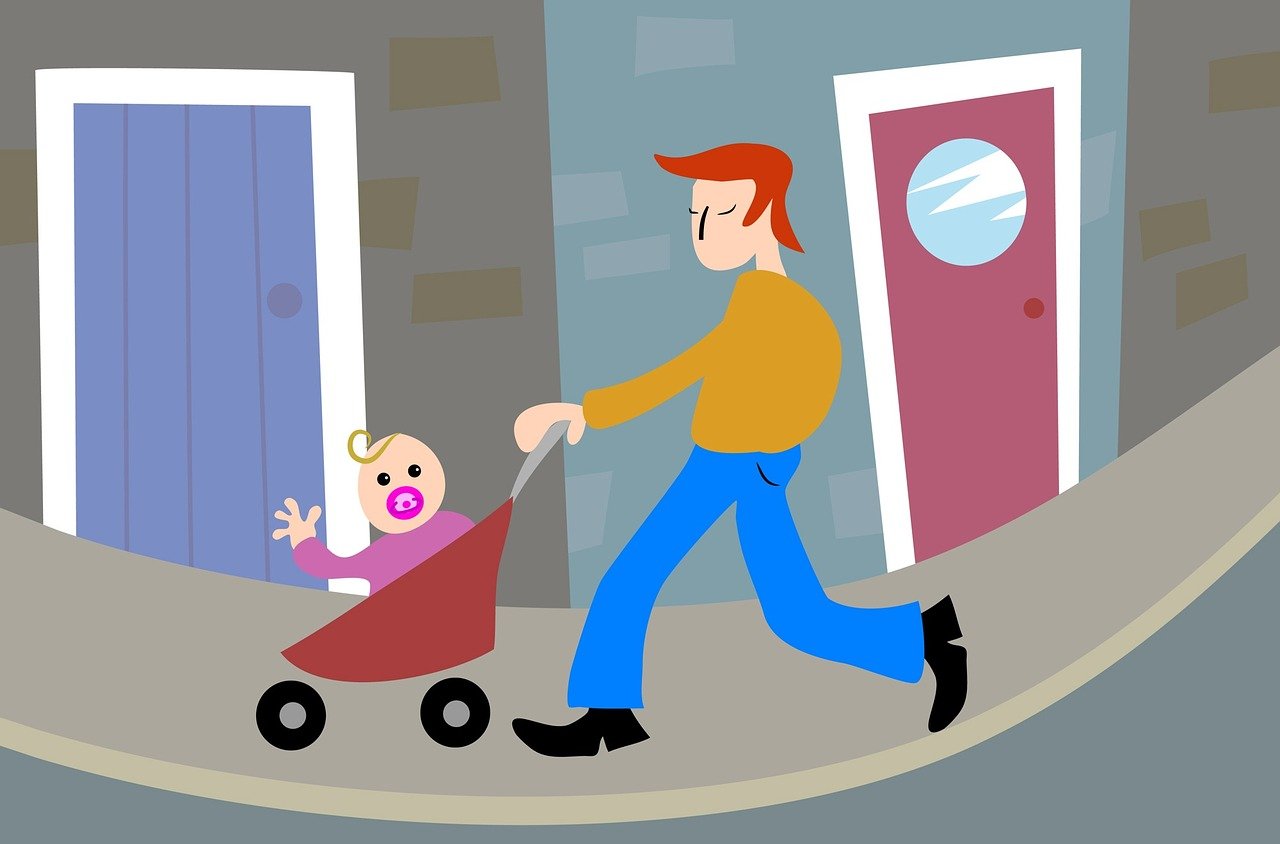A new report says too many employees in Britain feel their jobs do not have the flexible working they need to achieve their desired work-life balance.
The 2017 Modern Families Index – from the charity Working Families and nursery/preschool group Bright Horizons – looks at how families in the United Kingdom manage the balance between family life and work.
 Fathers are increasingly wanting to play an active part in childcare and are finding themselves facing the same career comprises as mothers have been facing for decades. Image: pixabay-1082911
Fathers are increasingly wanting to play an active part in childcare and are finding themselves facing the same career comprises as mothers have been facing for decades. Image: pixabay-1082911
The report offers a snapshot of the lives of everyday working families in all their various configurations. The 2017 edition reports the experiences of 2,750 working parents – half female and half male – across the UK.
‘Flexibility gap’
The report finds parents do not want work to encroach on family life. They see flexible working as an important tool for achieving this. However, many of those surveyed felt their organization and job denied them the opportunity to use it.
In particular, the survey finds:
– Nearly half of working parents are not comfortable talking to their employer about workload and hours
– Fathers in particular feel uncomfortable asking about flexible working, and they are more likely to hide or lie about the extent of their family responsibilities
– Twice as many fathers as mothers believe flexible workers are seen as less committed
– More than twice as many fathers as mothers say flexible working would damage their career
To close the “flexibility gap” reflected in these and other findings there needs to be a shift toward flexible working so when jobs are advertised it is seen as the norm and not the exception, the report recommends.
This would force employers to rethink how best to get jobs done and it would make access to flexibility fairer for all.
For this to work, employers cannot, for example, expect workers routinely to put in extra hours to get the job done.
When they design jobs, organizations need to consider the potential for flexible working and be realistic about what can be done in the hours available, says the report.
Over a third (37 percent) of parents – including those already in flexible working jobs – report feeling resentful toward their employer about their work-life balance (suggesting there are problems about workload and overwork.)
The report suggests employers need to consider social as well as business goals. They should be looking to attract people for whom inflexible or full time work would be a barrier to them returning to the workforce.
Most parents surveyed said employers who help their workers achieve a good work-life balance have a more loyal (57 percent said this) and better motivated and productive (55 percent) workforce.
‘The fatherhood penalty’
For decades, many women have had to compromise their jobs in order to take care of children.
Now, it seems that fathers are increasingly wanting to play an active part in childcare and are finding themselves facing the same comprises.
The report calls this the “fatherhood penalty,” where in order to be more active fathers, men are moving to lower paid and lower quality work.
It notes that the difficulty men are now facing balancing work and home is reflected in the fact nearly half (47 percent) of the fathers in the survey said they would like to downshift into stressful jobs.
70 percent of fathers say they would assess their childcare needs before accepting a new job or promotion, very nearly the same proportion as mothers who say the same (80 percent). This suggests men and women are now more on a par in thinking they might have to hold back their careers in order to look after their families.
Millennial fathers show the strongest desire to be hands-on fathers. While just over a third (38 percent) of fathers surveyed said they would take a pay cut to secure a better work-life balance, this was true of nearly half (46 percent) of millennial fathers.
The report’s findings about working fathers have prompted a parliamentary inquiry by the Women and Equalities Committee on how employers can better support fathers in the workplace.

